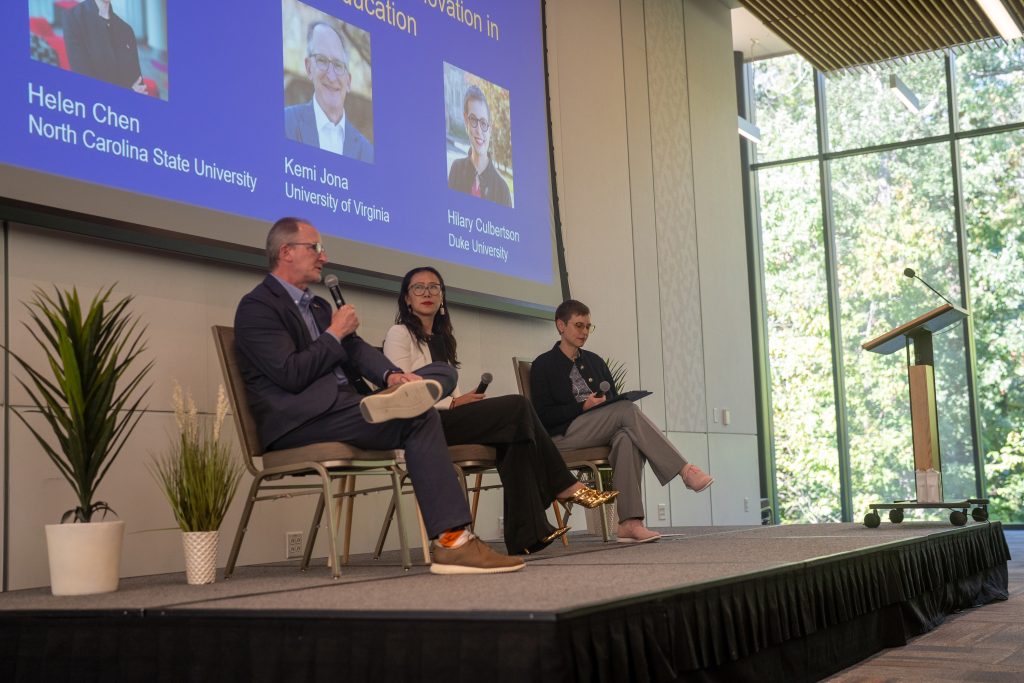Over 300 attendees joined us for three days of inspiring presentations and engaging discussions at the 2024 Emerging Pedagogies Summit, which explored the theme of Designing and Scaling Transformative Learning For All. Through their work with lifelong learners, LILE staff regularly engage with both the challenges and opportunities these emerging pedagogies present. In this series of Summit reflections, they share with you their major takeaways from each session.
After an inspiring keynote address from Nisha Botchwey on Thursday morning, the Emerging Pedagogies Summit provided attendees with an opportunity to spend some time thinking about the role of alternative credentials in higher education.
Hilary Culbertson, LILE’s Senior Director of Marketing and Communication, introduced us to Helen Chen, Senior Vice Provost for Instructional Programs at North Carolina State University, and Kemi Jona, Vice Provost for Online Education and Digital Innovation at University of Virginia. Both of these leaders have implemented alternative credentialing at their respective institutions.

During the discussion, both panelists stressed that an important characteristic of alternative credentials is that they have the potential to be free of some of the more restrictive bonds of traditional academic certifications and diplomas. By enabling learners to tell their own story about their education and experience, they hold the power to offer a more democratic, participatory voice within a credentialing process that is often highly regulated. Alternative credentials such as digital badges and/or “certificates with a small c,” they said, encourages grassroots educational initiatives, and allows faculty to break out of their departmental silos and collaborate with colleagues across campus in new ways.
The conversation moved toward the potential benefits that alternative credentials offer students, and their ability to provide evidence of incremental learning. Credentialing offers students who are unable to complete a full, intensive, traditional university degree a chance to walk away with an acknowledgement of the work that they have completed, and an official recognition of the learning that has taken place.
As the discussion drew to a close, both leaders stressed that most institutions are still in the early stages of determining how alternative credentialing will be integrated into the credit-bearing realm. The panelists left us pondering some of the challenging questions that institutions are working to answer: How involved is the university brand? How does a university balance “bottom-up” innovation regarding the use of credentialing with its commitment to quality?
I work as a teaching consultant in LILE, and I sometimes hear from instructors that they would like to offer students opportunities to learn about topics within their particular fields of expertise that don’t naturally fit into standard departmental curricula. Alternative credentialing could offer them a chance to do this.
I also serve as a college advisor to first and second year Duke students. Some especially ambitious students desire to explore topics and demonstrate their learning beyond the three total academic programs to which they are permitted to commit (major, minor, certificate program). This session led me to consider the possibility that alternative credentials could eventually offer students like these a way to explore additional interests, further augmenting their knowledge sets both prior to matriculation, and after graduation.

